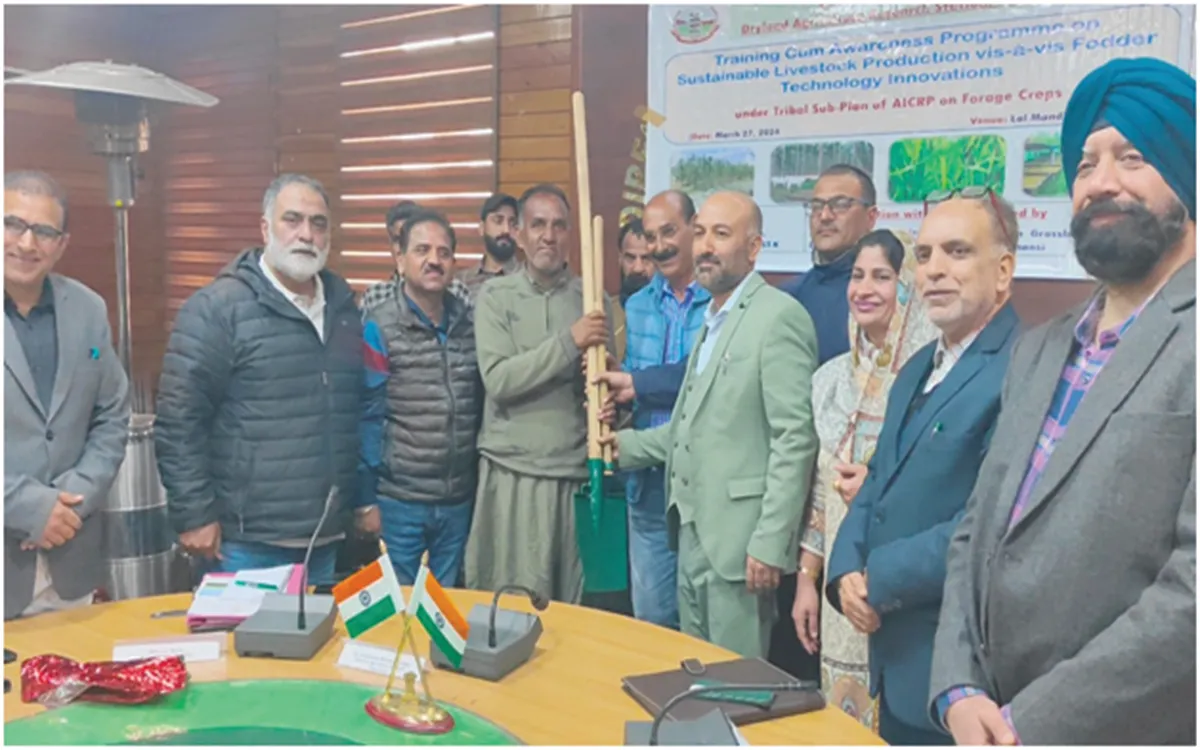Srinagar, Mar 27: SKUAST-Kashmir’s Dryland Agriculture Research Station in Rangreth, Srinagar, in collaboration with the Department of Agriculture, organized a one-day awareness and training programme on “Sustainable Livestock Production vis-à-vis Fodder Technology Innovations” on March 27, 2024, at Lal Mandi, Srinagar. The event was held under the Tribal Sub-Plan (TSP) of AICRP FC & U.
The programme commenced with a welcome address by Dr Fayaz Ahmed Bahar, Professor of Agronomy. Dr Zahoor Ahmad Dar, Associate Director of Research, highlighted SKUAST-Kashmir’s role in increasing fodder crop production and productivity, as well as milk production in the Kashmir Valley. He acknowledged the Department of Agriculture’s efforts in reaching out to the farming community across the region.
Choudhary Mohammad Iqbal, Director of Agriculture Kashmir, stressed the need to popularize fodder crops to overcome the existing 50% fodder deficiency by bridging the gap between lab and land through scientific technological interventions. He expressed hope in the coordination between the University and the Department of Agriculture and outlined the advantages of fodder crop cultivation. All participants were advised to take forward the mission of fodder cultivation through the Horticulture and Agriculture Development Program (HADP) already implemented in the Union Territory of Jammu and Kashmir.
Officers from the Department of Agriculture Kashmir, representing different areas of the valley, were the trainees. The program was also attended by officers from the department stationed at Lal Mandi, Srinagar. Various tool kits were distributed among farmers by the Chief Guest in the presence of scientists from DARS, Rangreth. A series of lectures on fodder crops were delivered by Prof. Asif B. Shaikri, Prof. Z.A. Dar, Prof. F.A. Bahar, Prof. N.S. Khuroo, and Dr. Zahida Rashid, covering different aspects of fodder crops. Each session was followed by an interaction session with trainees and feedback from farmers.







